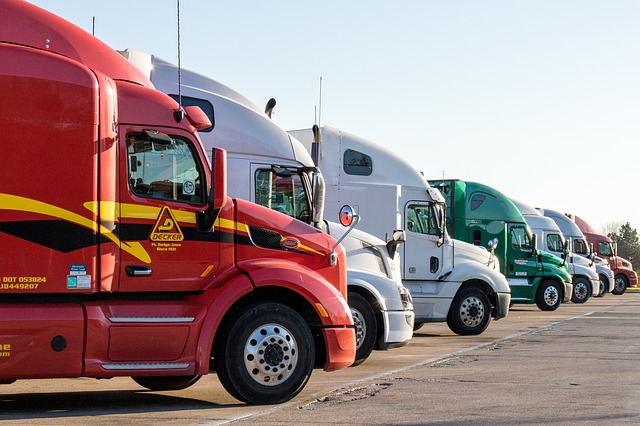The increased visibility of people online brought by the use of smartphones and tablets actually paved the way to the overwhelming growth of E-Commerce.
Online shopping has become very popular because of its convenience. Since retailers and wholesalers have lesser operational costs online compared to brick-and-mortar, they can offer bigger discounts and freebies.
During the pandemic, a lot of stores are closed and people are forced to stay indoors for safety, and so e-commerce has become one of the means to sell and purchase items, from food to clothing. As this offered a different kind of convenience, most people turned to online buying and selling, hence, it has now become a way of life.
E-commerce, though very beneficial to consumers, has caused a tremendous impact to the most important link in our supply chain – the trucking industry. As we know, trucks are responsible for the delivery and distribution of almost all consumer goods and services. How has the trucking industry been affected by the change of shopper’s buying behavior?
- Increased shipping/delivery speed
The demand for increase in shipping speed is brought about by huge online competitors such as Amazon. Most online retailers have begun promising next day delivery or two-day delivery. Amazon and some online retailers have their own trucks and drivers, and because of this they can easily control and command the speed of their delivery.
As this has “spoiled” most of the consumers, online retailers are now forced to keep up with this demand, and so trucking companies are now pressured to promise faster delivery time to remain in the supply chain. To stay in the game, companies increase their fleet but still opt to look for practical trucks, such as a Peterbilt semi for sale, in the market.
The downside of this is that truck drivers and trucking companies may ignore hours of service regulations in order to stay competitive, and may lead to fatigued drivers or road accidents.
- Warehouses and Fulfillment Centers are being built within the vicinity
Due to the increasing demand for shipping speed, suppliers are building warehouses and fulfillment centers that are strategically located in areas that retailers can easily gain access to. This way, online retailers will be able to offer same-day or next-day shipping.
This resulted in a shortage of long-haul truck drivers. Since a lot of goods deliveries are happening within the locality, drivers now prefer short hauls so they can be home more often, and there is no need for them to stay away for several days driving thousands of miles. This shortage of drivers can cause problems both to the e-commerce industry and to the conventional retail supply chain, as delivery times are taking a lot longer.
- Shipping costs are lowered
Shipping costs greatly influence a consumer’s decision, and so many retailers offer minimal to free shipping on purchase of their items in order to trigger the buyer’s impulse. However, retailers actually shoulder the shipping costs and so they will look for trucking companies who can offer them the lowest shipping cost possible. In this case, small trucking companies can no longer compete with the price that larger shippers such as FedEx, UPS and Amazon can offer, and this could definitely have a negative impact on their business.
- Traffic congestion and infrastructure damage
The increased online shopping and the demand for faster shipping time may require more trucks on the road to cater to the e-commerce chain. In an urban setting, an increase in the number of trucks may mean increased traffic congestion, and heavy traffic gets heavier.
Another downside is, since trucks are heavy and carry heavy loads, they may easily damage roads and bridges that have a weight capacity limit or simply are not designed for large trucks. Damaged roads can pose danger to smaller vehicles in terms of safety and vehicle-stress, and increase traffic as well.
As much as there are a number of notable disadvantages that e-commerce has brought us, we must remember that these discomforts are only temporary. As this is becoming a way of life, we will all be able to adapt and ease ourselves into this new normal.
When we take a good look at how e-commerce has become very beneficial to us as consumers, workers, and entrepreneurs, we will begin to appreciate this great change that is allowing us to live a more comfortable life. It gives us convenience, better choices, and value for our money.








